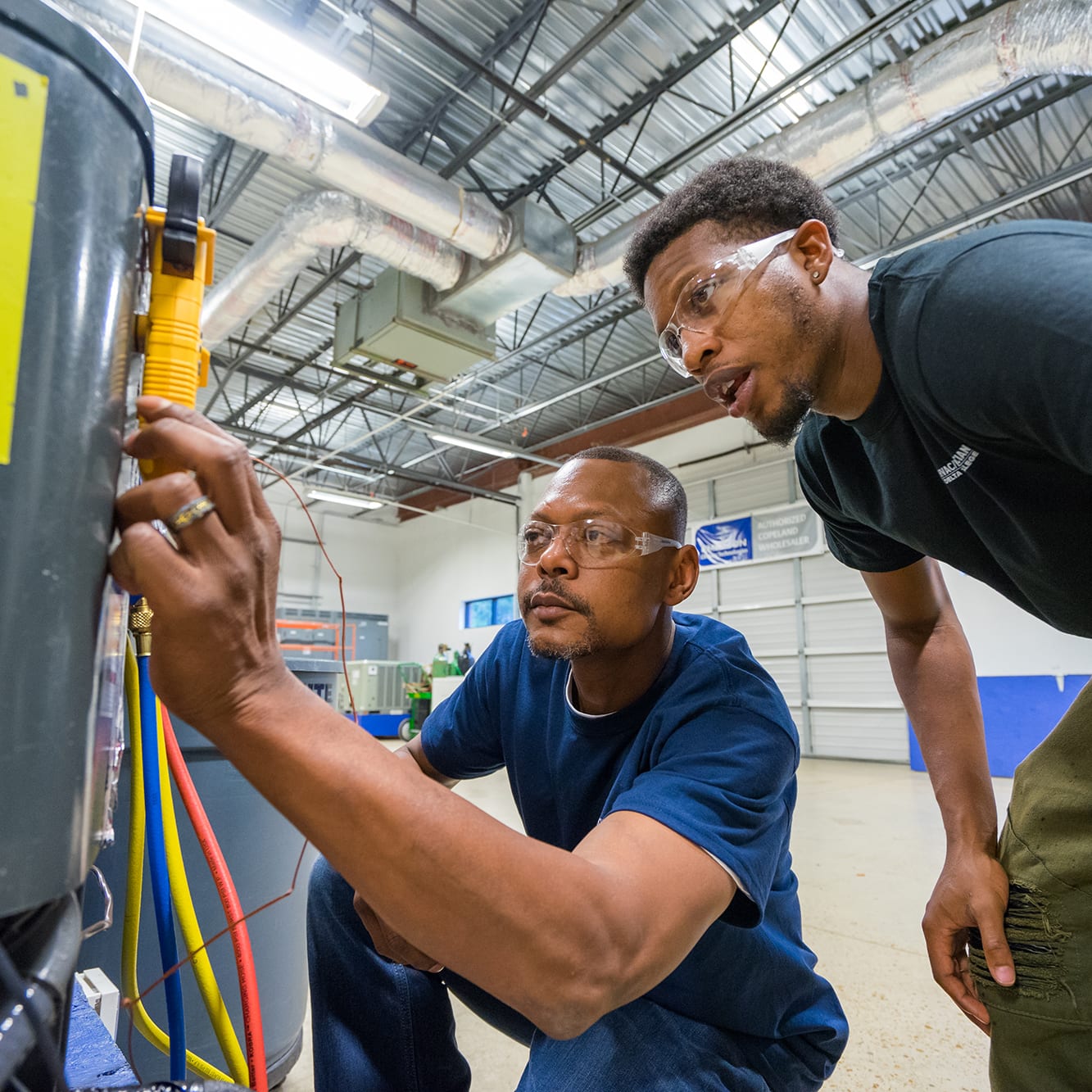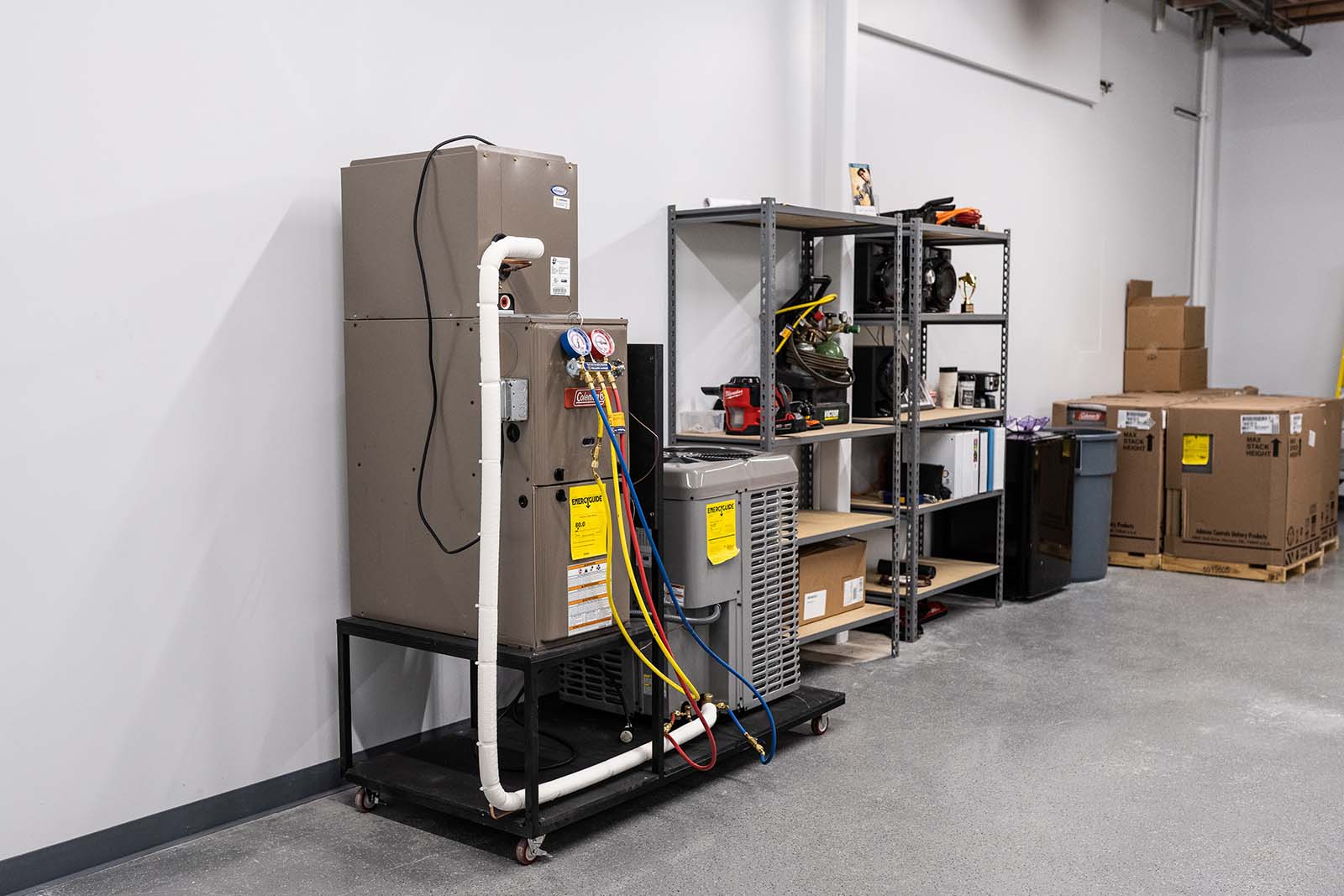Residential AC System Installation for Reliable Home Air Conditioning
Wiki Article
An In-Depth Consider A/c Services and Their Effect On Power Effectiveness and Expense Savings
With technical advancements like wise thermostats and high-efficiency components, the potential for enhancing system performance is huge. As we check out the elaborate relationship between Cooling and heating systems and functional prices, including the change towards eco pleasant options, the question occurs: how can these techniques be properly implemented to maximize both environmental and financial advantages?
Importance of HVAC Equipments
cooling and heating systems are an essential element of modern-day buildings, playing a vital function in keeping comfortable and healthy and balanced interior settings. These systems, encompassing air, air flow, and home heating conditioning, are vital for managing temperature, moisture, and air top quality, thereby guaranteeing the well-being of passengers. Effective HVAC systems add dramatically to producing an optimum indoor environment, which is important for both property and industrial spaces.In commercial buildings, HVAC systems are integral to offering a risk-free and efficient atmosphere. By regulating interior climate conditions, these systems aid avoid the development of mold and mildew and the spread of air-borne pollutants, thus protecting the health of customers and staff members. In addition, in residential settings, cooling and heating systems improve living problems by offering regular thermal comfort and enhancing interior air high quality, which is important for total wellness.
Additionally, the design and maintenance of cooling and heating systems have a direct influence on energy intake and functional expenses. Properly made and maintained systems can dramatically decrease power usage, causing lowered energy expenses and a smaller carbon footprint. The performance of these systems thus plays a critical function in advertising sustainability and power preservation within structures, highlighting their significance in the modern building landscape.
Breakthroughs in Heating And Cooling Modern Technology
Advancement in cooling and heating technology is revolutionizing the method buildings take care of indoor environments, ushering in a brand-new age of performance and control. Recent advancements have focused on optimizing energy intake while enhancing individual convenience. One significant development is the assimilation of wise thermostats, which utilize expert system to find out occupancy patterns and change temperatures as necessary, minimizing unnecessary energy usage.Variable Refrigerant Circulation (VRF) systems stand for one more considerable jump onward. These systems enable for exact temperature level control in different zones of a structure, improving comfort and reducing power waste. VRF modern technology is especially helpful for large business rooms, offering flexibility and scalability.
Additionally, the advent of Web of Things (IoT) tools has actually transformed HVAC systems into interconnected networks capable of real-time data collection and analysis. This connectivity enables anticipating maintenance, making certain systems operate at peak effectiveness and lessening unexpected downtime.
Furthermore, advancements in materials and layout, such as making use of high-efficiency coils and compressors, have enhanced overall system performance - Heating Contractor. The fostering of environmentally friendly refrigerants additionally highlights the industry's dedication to sustainability
These technological developments are crucial in lowering operational prices and ecological impact, setting new standards for building environment management.
Heating And Cooling Maintenance and Efficiency
Making certain ideal performance of HVAC systems extends past technological developments; it likewise depends upon efficient upkeep methods. Normal maintenance is vital for sustaining effectiveness, decreasing energy intake, and prolonging the life expectancy of heating and cooling systems. The key goal is to guarantee that all components operate at their peak potential, thus minimizing energy waste and keeping regular indoor comfort degrees.home depot ac installation Routine maintenance tasks, such as cleaning or changing air filters, inspecting refrigerant levels, and examining ductwork for leakages, are important for stopping unnecessary stress on the system. Dirty or clogged up filters can obstruct air flow, triggering the system to function more challenging and eat even more power. Also, inadequate refrigerant levels can decrease cooling effectiveness, resulting in greater functional costs.
Furthermore, regular inspections by certified experts can recognize prospective problems prior to they intensify right into costly repair services or system failures. These assessments typically include inspecting electrical links, adjusting thermostats, and making certain the overall integrity of the a/c system. By attending to minor problems early, home owners and businesses can stay clear of unforeseen breakdowns and improve energy effectiveness.
Affordable A/c Solutions
For those wanting to get one of the most out of their air, air flow, and heating conditioning systems without breaking the bank, exploring cost-effective heating and cooling solutions can make a significant difference. One immediate step is to purchase programmable thermostats, which permit individuals to set specific temperature levels for different times of the day, maximizing power use and lowering unneeded intake. By automating temperature adjustments, homeowners can attain substantial savings on power costs.Routine maintenance is another vital part of cost-effective heating and cooling management. Ensuring that filters are cleaned up or replaced on a regular basis, ductwork is sealed, and devices are serviced by professionals can stop costly repair services and boost system longevity. Preventive upkeep not just keeps system effectiveness but also aids in staying clear of unforeseen failures that can bring about expensive emergency situation repairs.
Additionally, retrofitting existing systems with energy-efficient components, such as variable rate motors or high-efficiency compressors, can be a prudent financial investment. These upgrades improve functional efficiency, decrease power usage, and can commonly be implemented at a portion of the cost of a full system replacement.
Ecological Impact Decrease
Reducing the ecological effect of A/c systems is critical in today's search of sustainable living. A/c systems are considerable factors to energy intake, accounting for virtually 40% of power use in business structures.
Technological improvements in a/c style and procedure, including the assimilation of clever thermostats and energy-efficient heatpump, are crucial in minimizing carbon footprints. These innovations allow for enhanced energy usage, minimizing waste and improving overall system performance. In addition, embracing regular maintenance techniques makes certain HVAC systems run at peak effectiveness, additional stopping unnecessary power usage.
home In addition, using ecologically pleasant cooling agents is important, as traditional cooling agents, like CFCs and HCFCs, have actually been terminated due to their ozone-depleting residential or commercial properties. Modern alternatives, such as hydrofluoroolefins (HFOs), offer decreased environmental central heating and cooling risks, aligning with worldwide ecological protocols. By accepting these sustainable techniques, heating and cooling services can play a transformative role in lowering environmental influences, advertising energy efficiency, and fostering a much more lasting future.
Conclusion

Additionally, the style and maintenance of HVAC systems have a straight effect on energy intake and functional expenses. Regular upkeep is vital for maintaining efficiency, minimizing energy usage, and expanding the life period of Cooling and heating systems. HVAC systems are substantial contributors to power usage, accounting for virtually 40% of energy use in industrial structures. Furthermore, embracing regular upkeep techniques makes sure A/c systems run at peak efficiency, more reducing unneeded power consumption.
The transition to ecologically friendly HVAC systems further promotes and reduces operational expenses sustainability. (Heating Contractor)
Report this wiki page